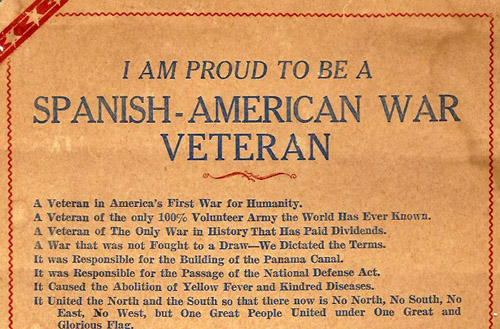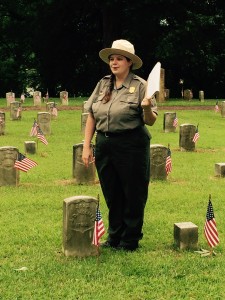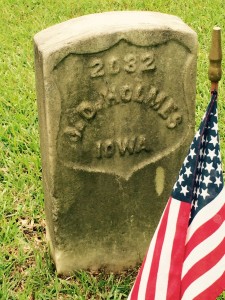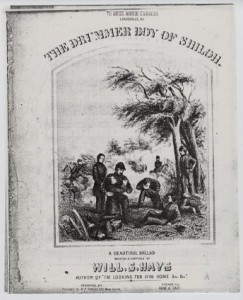On May 29, 1899, James McMillian “Jim” Scott sent one of many letters to his lady friend in Columbia, Kentucky. The two had been corresponding for two years, but it would take the Cumberland County native another three months to finally declare his love for Ellie Garnett and propose marriage. In the meantime, at Paris, Texas, where he was then living, he awaited formal discharge from his service in the Spanish-American War.
At the onset of the war, Scott had been eager to ship out to either the Philippines or Cuba, but only got as far as Key West, Florida, when a yellow fever scare drove his company north to Montauk Point on Long Island. It was a harrowing journey: nine days at sea aboard the filthy and “reeking” transport San Marcos with “scarcely enough food to sustain life,” evidence that a soldier’s hardships extended far beyond the battlefield. Fortunately, the ship was met by philanthropist Helen Gould, the daughter of tycoon Jay Gould and a prominent supporter of war relief programs. She served “fresh sweet milk”—the first Scott had tasted in months—while her assistants passed out sandwiches to the half-starved men.
After returning safely to Texas, Scott looked forward to the observance of Decoration Day (now Memorial Day). The day would begin with an assembly at City Hall, he wrote Ellie. Then “the dear old Confederate and Union veterans will take the lead while we veterans of the Spanish-American War in full uniform will march behind.” After services at a local church, “we will repair to the various cemeteries and decorate the graves of the fallen heroes. Thus we show to the world that our own dear soldiers are never forgotten and that we appreciate their gallant services. Let us do honor to these departed heroes of ours, not only that the world may see, but that their spirits may also see and rejoice that their comrades both old and young do honor to their ashes in remembrance of their noble deeds, done for a cause we all love so well.”
Jim Scott’s story is part of the Manuscripts & Folklife Archives collections of WKU’s Department of Library Special Collections. Click here for a finding aid. For more war collections, search TopSCHOLAR and KenCat.





